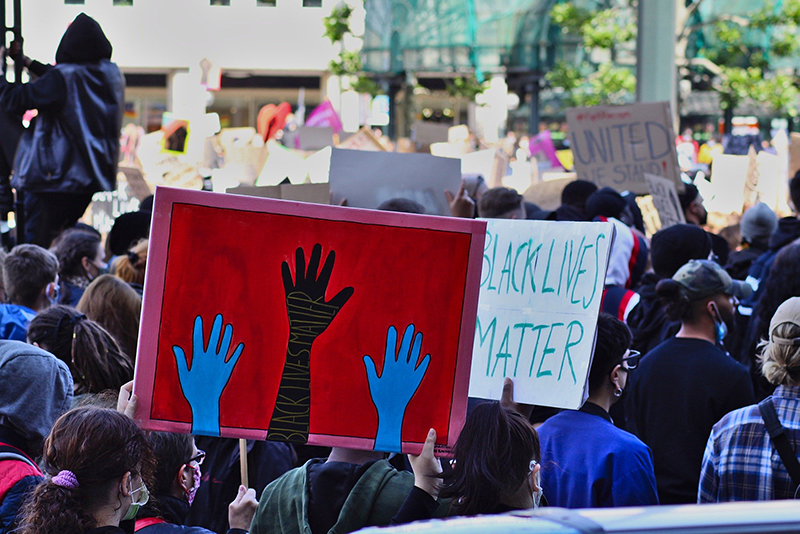What is a culture?
 The word ‘culture’ can conjure up many different ideas depending on the context and the person you are talking to. If you’re a biologist, cultures are found in a dish. If you work in HR, it’s the way things are done in the workplace environment. If you’re familiar with 80s music, perhaps you’ve now got ‘Karma Karma Karma Karma Karma Chameleon’ stuck in your head (sorry!). However, as a doctoral researcher exploring cultural differences and education – the kind of culture that I am referring to, well, that has proven harder to pin down. Psychologists, philosophers and anthropologists have been arguing about the definition of culture for years, so little old me in my home office in lockdown can perhaps be forgiven for not having the perfect definition, but here goes.
The word ‘culture’ can conjure up many different ideas depending on the context and the person you are talking to. If you’re a biologist, cultures are found in a dish. If you work in HR, it’s the way things are done in the workplace environment. If you’re familiar with 80s music, perhaps you’ve now got ‘Karma Karma Karma Karma Karma Chameleon’ stuck in your head (sorry!). However, as a doctoral researcher exploring cultural differences and education – the kind of culture that I am referring to, well, that has proven harder to pin down. Psychologists, philosophers and anthropologists have been arguing about the definition of culture for years, so little old me in my home office in lockdown can perhaps be forgiven for not having the perfect definition, but here goes.
The word ‘culture’ itself has French and Latin roots, deriving from the word ‘colere’ meaning ‘cultivation’. The word has agricultural beginnings and is associated with helping something to be nurtured, to thrive, to grow. One recent definition that resonated with me was:
When people in a culture agree on what elements are important to the culture, these elements become the core elements of the culture.(Wan and Chiu, 2009.) This is because the above definition means that what a culture is can be determined by the people within it, they can choose how to define it. Whatever their way of life might be, what intrinsic or extrinsic aspects there are which distinguish a group from another, the parts they want to be proud of, the parts that bring them shame - it’s consensual between the members (Holliday, 1999).
Why should I deepen my understanding of cultures?
 A culture is so difficult to define – not least because a culture is not fixed but can be fluid and can evolve over time. The very process of trying to define it has been called (by Nobel Prize winner Amartya Sen, 2008) ‘a hopeless form of trying to moor the cultural anchor on a rapidly moving boat’.
A culture is so difficult to define – not least because a culture is not fixed but can be fluid and can evolve over time. The very process of trying to define it has been called (by Nobel Prize winner Amartya Sen, 2008) ‘a hopeless form of trying to moor the cultural anchor on a rapidly moving boat’.
So why bother? The long answer can be found in a 65,000 word document on my laptop. To save you some time, the short answer is because the culture(s) that we are brought up with can influence all aspects of our daily lives: from what we think, to how we behave, to how others treat us. In other words, it can shape how we see ourselves as part of a larger group but it can also shape how others perceive us. Too narrow of an understanding of cultures can lead to ‘othering’ and can produce prejudice when people fear what they don’t know.
In recent months, inequalities based on race, ethnicity and colour have been brought back to the front of our minds following the death of George Floyd and the Black Lives Matter protests which followed. It has stirred up complex and difficult emotions from all who identify with minority groups but there has also been an outpouring of support from people who call themselves ‘allies’.
 ‘Allies’ are people who may consider themselves to be members of a different group but who want to show that they are united in condemning treating others poorly because of their race, ethnicity or cultural identity. In a time where there is much uncertainty, it is clear that the vast majority of people are certain that deepening an awareness of our history and the history of other groups is very important.
‘Allies’ are people who may consider themselves to be members of a different group but who want to show that they are united in condemning treating others poorly because of their race, ethnicity or cultural identity. In a time where there is much uncertainty, it is clear that the vast majority of people are certain that deepening an awareness of our history and the history of other groups is very important.
Where is a culture?
In addition to the great debate over the definition, there have also been some competing views when it comes to whether a culture exists internally or whether it exists in the wider world. As Odin put it: (OK, OK, not a great philosopher, but the mighty Thor’s dad, you’ll get the point so bear with me!)
Asgard is not a place. Never was. This could be Asgard. Asgard is where our people stand.
The point is where people believe a culture really can be found. Some authors take the view that a culture is housed in the mind. For instance, social psychologist Hofstede (1984) says that culture is: ‘the collective programming of the mind which distinguishes the members of one human group from another.’ More recently, some authors highlight that culture exists in the form of ‘…patterned beliefs, attitudes and mindsets that go together in loosely defined networks.’
 So is it the case that a culture is about a mindset, are they a collection of core values passed from generation to generation and therefore maybe taught or socialised? The strengths of the above definitions of culture are that it does indicate that a culture involves a shared set of traits and recognises the need to understand underlying beliefs. However, these definitions ignore the great variation within the variation, the overlaps or similarities between cultures and it lacks flexibility. They also don’t tell us about the source of cultural values, where they originate from.
So is it the case that a culture is about a mindset, are they a collection of core values passed from generation to generation and therefore maybe taught or socialised? The strengths of the above definitions of culture are that it does indicate that a culture involves a shared set of traits and recognises the need to understand underlying beliefs. However, these definitions ignore the great variation within the variation, the overlaps or similarities between cultures and it lacks flexibility. They also don’t tell us about the source of cultural values, where they originate from.
The competing perspective is that a culture does not exist in the mind but can be found in society. Schwartz (2009) disagrees with Odin – sorry, I mean, Hofstede – and says:
‘Culture is outside the individual. It is not located in the minds and actions of individual people. Rather, it refers to the press to which individuals are exposed by virtues of living in a particular social system’.
So if a culture is not in the mind, perhaps it can be physically represented. This can be in the form of primary artefacts such as the physical objects or objective elements while secondary artefacts are the norms and beliefs or subjective social practices. Great importance may be placed on the architecture, monuments or even the food within a culture as it reminds them of a shared history. Once again, recent reports of the anger around statues has shown how protective people are of their history and in wanting to remove reminders of the difficult and dark parts of that history.
What is our next move?
 There has always been a tension throughout history between the longing for belonging and the want, the need to be free. We all crave to understand our identity, to want to belong to a group no matter how big or small. A cultural identity is just one of these, it can intersect with others such as our gender or our role in society. We want to be free to choose the parts of our heritage that we want to know more about and hold on to and other parts that we might want to let go of. We might all feel a little sad or helpless when we watch videos of intergroup conflict of any form. Only by recognising how groups are formed, what binds them and what divides them and educating ourselves can we work towards being one strong global community. We might have different next moves available to us but the overall strategy must be the same so that we all win.
There has always been a tension throughout history between the longing for belonging and the want, the need to be free. We all crave to understand our identity, to want to belong to a group no matter how big or small. A cultural identity is just one of these, it can intersect with others such as our gender or our role in society. We want to be free to choose the parts of our heritage that we want to know more about and hold on to and other parts that we might want to let go of. We might all feel a little sad or helpless when we watch videos of intergroup conflict of any form. Only by recognising how groups are formed, what binds them and what divides them and educating ourselves can we work towards being one strong global community. We might have different next moves available to us but the overall strategy must be the same so that we all win.






Rate and Review
Rate this article
Review this article
Log into OpenLearn to leave reviews and join in the conversation.
Article reviews